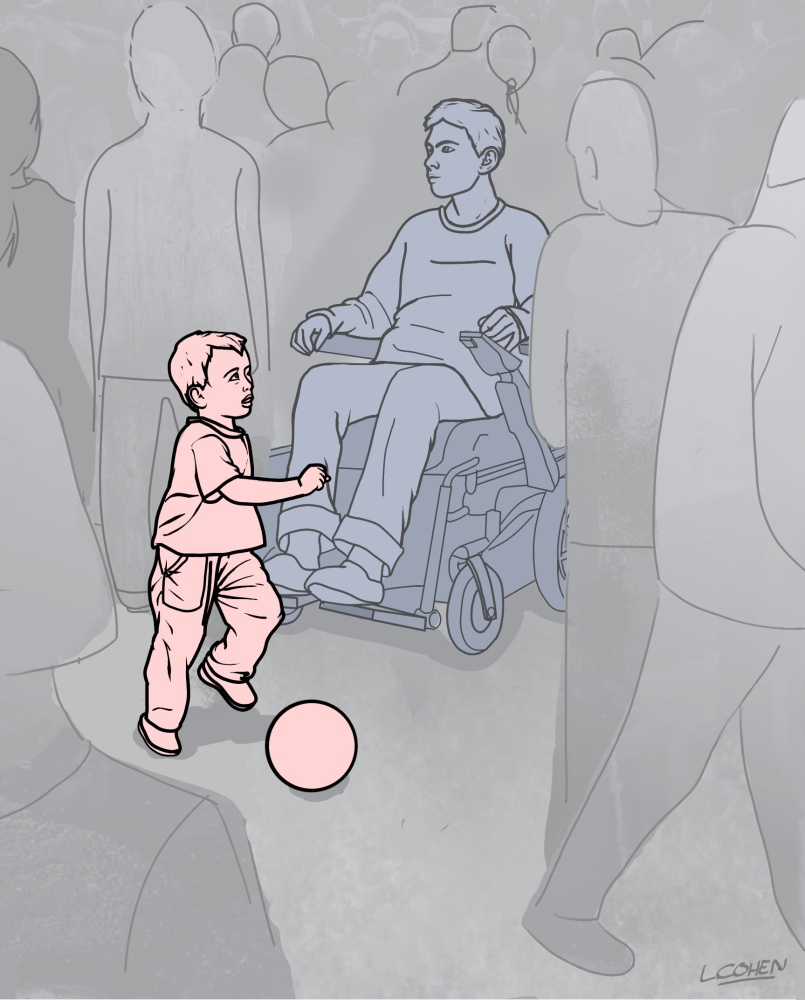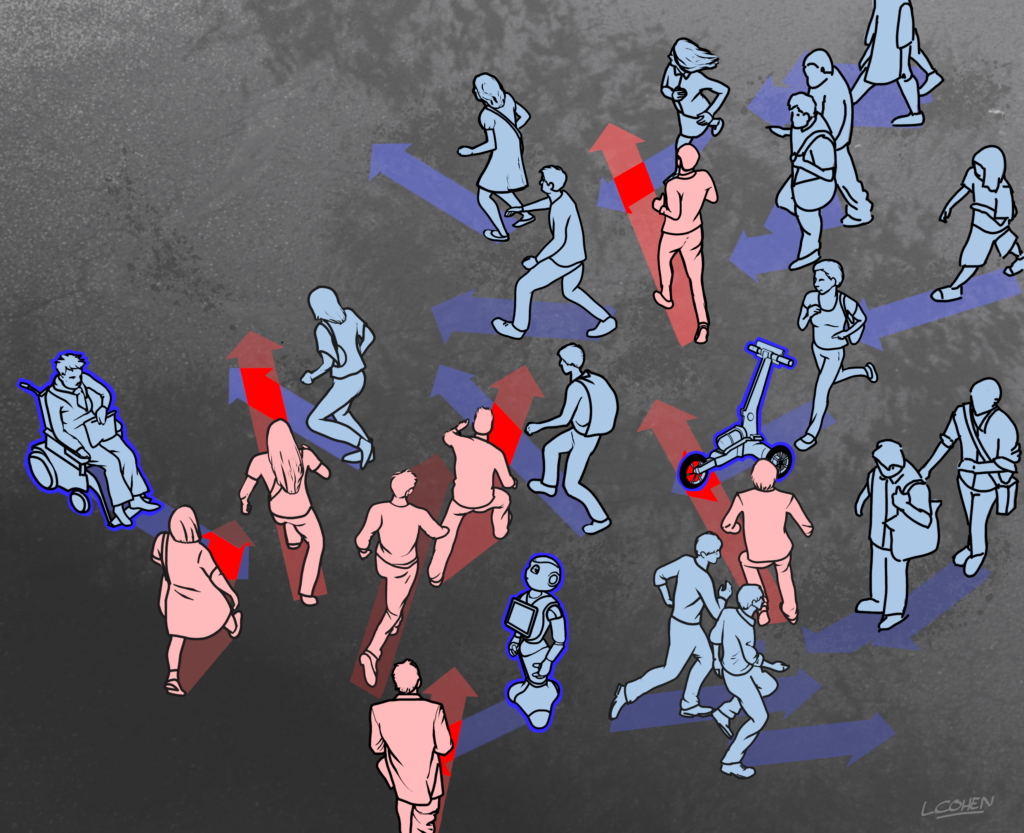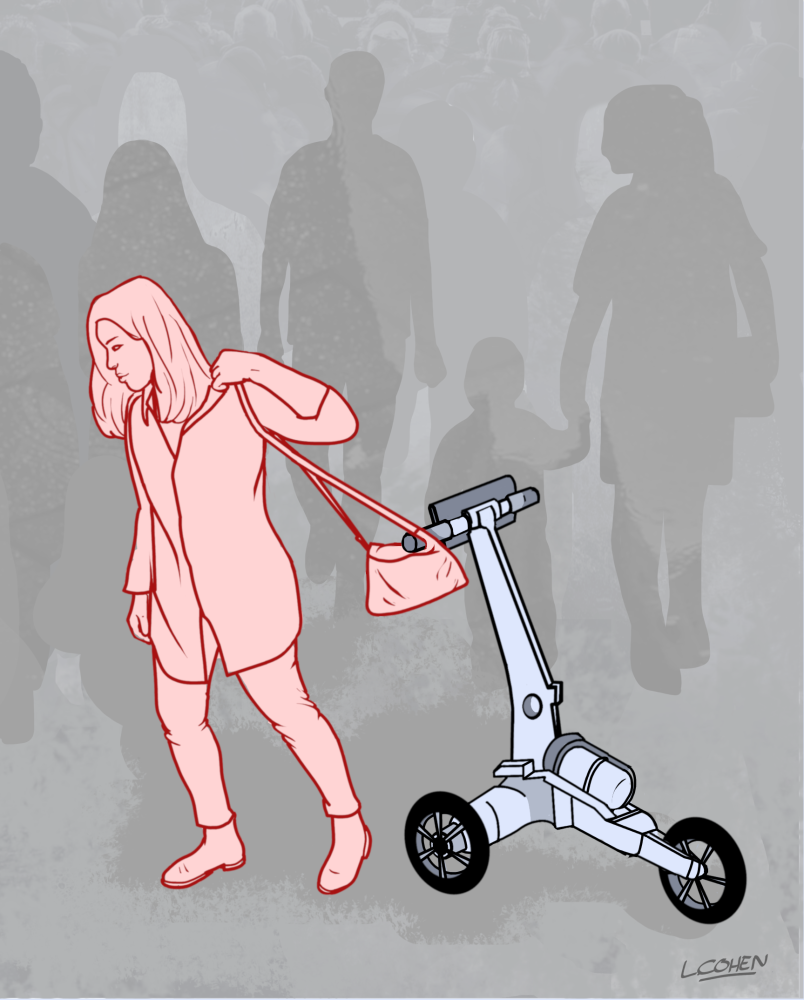


Objectives
Nowadays, robots share public and private spaces with us in many ways: drones flying commercially, autonomous cars, service robots in buildings, and delivery robots coming to the pathways. Although public attention has been focused on autonomous vehicles and drones, the arrival of multiple robots to the pathway and the questions arising from sharing the public pedestrian space are still under-represented.
The focus of this workshop is on “Crowdbots”, that is, robots that share the floor with pedestrians, including any robot with semi/autonomous mobile capabilities designed to perform tasks in public places (i.e., carry loads, move people around or provide assistance) and the safety, ethical and legal challenges that we will face and should be considered for achieving these robots in our society.
This workshop aims at providing an overview of the challenges in navigating through highly dynamic human environments and a better understanding of potential sources
of physical and psychological hazards. From robot-human crowd interaction simulation, robot navigation control, to an overview of the main ethical, legal and societal implications emerging from research and deployment of robots in such unconstrained environments with humans.
To this end, the workshop brings together a set of well-known experts on standards and safety for robots moving close to people, as well as a group of experts on ethics, law and social sciences. Herewith, focusing on an audience of both researchers and industrial roboticists with an interest in human-robot interaction, autonomous driving robots, robot control and navigation, design and safety of robot operation. While fostering involvement between the audience and speakers in an open and interactive discussion for sharing awareness of both technical and social challenges.
Crowdbots Video DEMO
Sessions
Session on technical and safety requirements for crowdbots
This session intends to address the most relevant aspects of physical and psychological safety related to crowdbots. While safety has been extensively investigated for collaborative robots, there is still little research on hazards emerging from robots deployed in public spaces.
Takayuki Kanda
Professor from the University of Kyoto Japan – an expert in human-robot interaction and human-aware navigation – will address hazards deriving from properties of the public environments, such as vandalism, the violation of social norms and proxemics space.
Elizabeth Broadbent
Professor from the University of Auckland, New Zeland – psychologists and expert in psychological aspects of human-robot interactions – will touch upon psychological safety, focusing on hazards deriving from low levels of perception of safety which can be caused by robot appearance, behaviour, and affective capabilities.
Sami Haddadin
Professor from the Technical University of Munich, Germany – expert in physical human-robot interactions –will focus on how to reduce the risks of contact; ensure safe contacts between humans and robots and distinguish between different types of contacts (intentional, unintentional and cooperative). Currently, the only available safety standard that would include robots navigating around humans is the ISO13482:2016. However, the standard does not provide any requirements for hazards deriving from the presence of human crowds.
Session on ethical, legal and social implications of crowdbots
The objective of this session is to identify and discuss the main ethical, legal and societal (ELS) implications emerging from the deployment of robots in crowded environments. Beside safety, there exists also other ethical values, which should be considered during the design of robots, such as dignity, freedom; privacy; deception, emotional attachment, non-discrimination; personal data protection, etc.
René von Schomberg
Directorate General for Research and Innovation, European Commission – Expert in responsible research, innovation and ethics for emerging technologies – will focus on ethics for responsible research and innovation.
Carl Macrae
Professor Nottingham University Business School – applied psychologist specialising in how organisations achieve high levels of safety, reliability and resilience and build cultures of learning and improvement.
Currently he is researching the risk analysis and safety governance of artificial intelligence in complex sociotechnical systems like healthcare.
Professor University of the West of England Bristol – expert on robot ethics and member of the BS8611:2016 working group – will focus on social-robot accident investigation, from expertise on ethical hazards from British Standard (BS) 8611:2016, the first safety standard dealing with ethical hazards.
Short-talks session
The workshop will be advertised using the most popular robotics mailing lists (i.e. world-wide robotics, euRobotics AISBL, and hri-announce), the personal contacts of each organisers. The presence as speakers of experts in ethics, law and society, will increase the chances to reach other researchers, outside the robotics community, by advertising the workshop via mailing lists in different disciplines.
Short talk 1:
Anna M. H. Abrams (RWTH Aachen University, Germany)
Field observation: interactions between pedestrians and a delivery robot.
Download abstract paper here
Short talk 2:
D.G. Sorrenti (Univeristy of Milan – Bicocca, Italy)
Interaction autonomous vehicle – pedestrian: dynamic vehicle behaviour as a function of subjective safety perception.
Download abstract paper here
Short talk 3:
Luca Marchionni (PAL Robotics, Spain)
Robot control and navigation: ARI’s autonomous system.
Download abstract paper here
Short talk 4:
Diego Paez-Granados (EPFL, Switzerland)
Physical Safety in Collisions Between Robots and Pedestrians
Download abstract paper here
Short talk 5:
Janderson Ferreira (POLI-UPE, Brazil)
Analysis of CNN encoder and Deep Reinforcement Learning to Active Learning in Social Robotic Navigation
Download abstract paper here
Short talk 6:
Ben Wright (US Naval Research Laboratory, US)
Crowd Polarization as Environmental Alignment Heuristic.
Download abstract paper here
Short talk 7:
Henry Eberle (UCL, UK)
Autonomy vs. Safety in Shared Control Crowd Navigation.
Download abstract paper here
Interactive Session
The discussion is open to any question and it is meant to allow young researchers to interact directly with senior researchers. However, the moderator will steer the discussion towards the following two main issues: a) ‘Do the benefits overcome the risk for society of using Crowdbots’? b) ‘Do we need specific regulations for robots moving in crowds?’.
Open Discussion:
In this 30 minutes session the organisers, speakers, and audience exchanged ideas, comments, and discussed the topics presented during the workshop.
Moderator: Diego F. Paez G.
List of topics
- Robot-Crowd Navigation
- Uncertainty modeling in human motion prediction
- Active perception for intention and action prediction
- Autonomous driving robots
- Robot control and navigation
- Safety concerns and standards for mobile robots
- Human-robot collision
- Safety of robot operation
- Ethical Issues in Human-robot Interaction Research
- Ethical and legal frameworks for robot deployment
- Safety concerns and standards for mobile robots
Schedule (Times in CEST)
Videos of Crowdbot topics
CROWDBOT: Robots from Pathways to Crowds
Hazards deriving from properties of the public environments (KEYNOTE)
Field observation: interactions between pedestrians and a delivery robot
Psychological safety, focusing on hazards deriving from low levels of perception
Interaction autonomous vehicle – pedestrian: dynamic vehicle behaviour as a function of subjective safety perception
Robot control and navigation: ARI’s autonomous system
How to reduce the risks of contact ensure safe contacts between humans and robots
Physical Safety in Collisions Between Robots and Pedestrians
EPFL: Qolo Robot / Locomotech: CuyBot / ETHZ: Pepper Robot
Analysis of CNN encoder and Deep Reinforcement Learning to Active Learning in Social Robotic Navigation
Ethics for responsible research and innovation
Crowd Polarization as Environmental Alignment Heuristic
Autonomy vs. Safety in Shared Control Crowd Navigation
Social-robot accident investigation, from expertise on ethical hazards
Open Discussion
